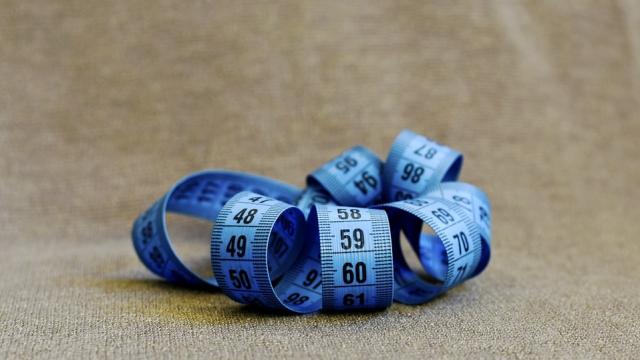It’s well known that Americans have steadily become more overweight and obese over the years. A widely reported 2017 study even found that overweight Americans were giving up on losing weight altogether—but, as it turns out, that conclusion wasn’t quite right.
On Tuesday, the authors of the study retracted and corrected their finding, claiming they had made a crucial mistake in tallying certain survey results. But even the corrected findings don’t necessarily paint a rosy picture of Americans’ collective response to growing rates of obesity.
The original study was published as a research letter in the journal JAMA in March 2017. It found that 56 per cent of overweight and obese people reported trying to lose weight within the past year between 1988 to 1994, while only 49 per cent of Americans said the same between 2009 to 2014. According to the authors’ retraction though, also published in JAMA, that latter figure was off the mark.
The authors relied on data taken from the National Health and Nutrition Examination Survey (NHANES), a nationally representative survey of Americans’ dieting and lifestyle habits. And the mistake, they say, came about because of a subtle change in questions asked in the survey.
From 1988 to 1994, every person was asked if they had tried to lose weight in the past year, so the authors simply looked at the percentage of overweight people who answered that particular question. But starting in 1999, the NHANES took a different approach.
First, people were asked to self-report their current weight and the weight they were at a year before. If someone said they weighed at least 5kg less than they did a year ago, they were then asked if this weight loss was intentional.
Those who said yes were then not asked the specific question of whether they tried to lose weight in the past year, while everyone else continued to be asked that question. The researchers said they didn’t know about this change until a reader informed them of it, which led them to neglect to count people who had successfully lost weight as part of the bigger group of people who had tried to lose weight.
Once they took these people into account, their major finding disappeared. With the corrections added, they found that around 58 per cent of overweight Americans between 2009 to 2014 said they tried to lose weight in the past year. That’s slightly but not significantly higher than the percentage of people who said the same in the 1980s and 1990s.
The original study’s findings were widely discussed and reported on by news outlets (including by me for the website Vocativ). But the study authors didn’t claim to have a clear answer as what their results might have meant.
Senior author Jian Zhang, an epidemiologist at Georgia Southern University, told me at the time that one reason could be that people were trying less to lose weight because of their surrounding social environment. If the average weight of the population is higher, they theorised, a person who’s overweight might be less inclined to perceive their weight as being out of the ordinary and subsequently not feel motivated to lose weight.
But Zhang also allowed for the possibility that people were trying less to lose weight simply because of the growing realisation of how utterly hard it is to keep the pounds off. Many overweight people can lose weight in the short term through changes in diet and exercise, but sustained weight loss is notoriously difficult in the absence of radical options like bariatric surgery (and even bariatric patients typically regain some weight back).
The authors say their corrected findings don’t entirely discount the possibility of these factors being a reality for some. Even with the update, the team still found a meaningful decrease in the percentage of white and black women who said they tried to lose weight from 2009 to 2014. And earlier this year, Zhang also published research relying on the same NHANES data looking only at overweight teens.
That study found teens today were less likely to attempt weight loss, which still remained the case after they corrected and accounted for the survey change.
The team also noticed that the percentage of people who said they lost more than 5kg over the past year has steadily risen over time. But other objective data has shown the complete opposite pattern: People across all different segments of the population are becoming heavier.
Zhang also has concerns about relying on self-reported major weight loss as a perfect proxy for someone trying to lose weight. It’s possible someone did lose 5kg of weight in the past year unintentionally (such as through being sick), but still reported it was on purpose. And it’s possible that people are misremembering weight changes over the past year, since even a person’s current self-reported weight tends to be off from their measured weight.
The team plans to account for these discrepancies and validate how accurate the survey data really is when looking at people’s weight loss attempts. But Zhang points out that even should their new findings stand, they’re still not very encouraging. The same NHANES data shows that around 59 per cent of American adults were overweight between 1988 to 1994, while around 26 per cent were obese; by 2016, 72 per cent of adults were overweight, while nearly 40 per cent were obese.
In other words, even as people as a whole have gotten much heavier, we’re not necessarily trying any more often to lose weight.
“With more conservative analytic approaches, the conclusions remain depressing,” Zhang said. “There is no reliable evidence indicating that more and more Americans who are overweight are motivated to correct their body weight.”
[JAMA]
